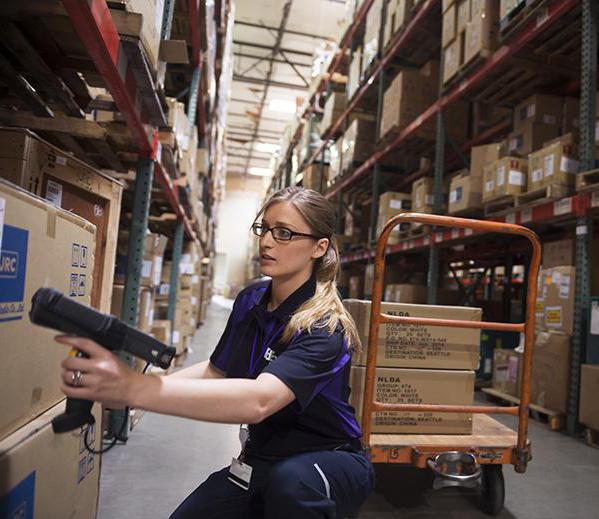Federal laws of the Russian Federation on customs regulation are aimed at ensuring the implementation ofinternational agreements that constitute the normative base of the Eurasian Economic Community, as well as decisions of the authorized bodies, including the FCS. Legal acts serve the purpose of preserving the economic security of the country in the process of foreign trade activity. Consider some of the provisions that define Federal Law 311-FZ "On Customs Regulation".

Key Objectives
The Law "On Customs Regulation in the Russian Federation" focuses on:
- To improve the state administration in the field of foreign trade.
- Ensuring the observance of interests and rightssubjects involved in the import / export of goods to / from the country, persons whose work is related to the design of the relocated facilities, as well as exercising the rights to use, dispose and own the imported and exported goods.
- Formation of conditions for the development of foreign trade and foreign economic activity, development of infrastructure in the field of customs.

Scope
The Federal Law "On Customs Regulation"extends to relations related toimport / export of goods, their movement within the country, between the territories of the State and artificial islands, facilities and installations subject to its jurisdiction, in accordance with applicable domestic and international standards. The provisions of the legal act regulate the relations arising during the temporary storage, declaration, release and use of goods, the implementation of control measures, the collection and payment of prescribed fees. Powers of state authorities within the scope of the prescriptions are also established in the Federal Law in question. The Law "On Customs Regulation" establishes the duties and legal capabilities of the entities involved in the import / export of goods to / from the territory of the country. In the normative act, the organizational and legal bases for the work of the bodies and divisions of the FCS are determined, and the authoritative relations between them and the subjects exercising the rights to dispose, own, use the exported / imported goods are regulated.
Customs regulation
It consists in the definition of rules and orderimplementation of customs procedures and other activities related to the design, movement of goods across the state border. The customs business is a set of methods and tools aimed at ensuring compliance with the requirements set by industry legislation. It also provides for certain restrictions and bans applicable to the import / export of objects. The applied measures are coordinated with the provisions of the TC TC, international standards.

Special rules
The Law "On Customs Regulation in the Russian Federation" determines the list of cases and establishesthe procedure under which unilateral restrictions and prohibitions can be applied, measures that are different from those implemented in one or more of the States Parties to the CU. At the same time, when introducing special rules, conditions for their compliance, means and methods of ensuring their implementation in accordance with international agreements should be provided. Acts of the president or government can be determined by the executive bodies authorized to exercise control and supervisory functions.
Specificity of management
The main governing body in the field of customsregulation is advocated by the government. For the direct implementation of sectoral tasks, a special body is being formed - the FCS. This institution, in accordance with the TC TC or internal laws, implements the functions of elaborating state policy and normative regulation in the sphere of customs business. The FCS ensures uniform compliance by all subdivisions with the provisions of sectoral regulations. The executive body exercising powers in the field of finance determines the state policy in the field of setting duties and determining the customs price of goods.

Normative provision
The Law "On Customs Regulation"extends its effect on all relationships,related to the export / import of goods. In accordance with the normative act, the government can establish the procedure for the implementation of acts of the CU on the territory of the country in cases provided for by the TC. Published in official sources, international agreements that form the normative basis of the Customs Union, as well as EurAsEC decisions, operate directly in Russia, if they do not have requirements for the adoption of domestic legal documents for their application. Relations in the sphere of import / export of goods are regulated by the TC TC and by the regulations in force in the country. The latter include the considered Law "On Customs Regulation" and other legal documents adopted on its basis. The rules of direct actual crossing of the state border by vehicles and goods are regulated by the relevant legal document. Actions for which the Federal Law "On the State Border" does not apply are regulated by Federal Law No. 311.

Enactment of norms
The Law "On Customs Regulation" establishes a one-month period for obtaininglegal documents of their legal force. The period is calculated from the date of official publication of the acts. Another procedure may be envisaged in the TC TC. Law "On customs regulation" contains a list of exceptions for which this provision does not apply. It includes the following acts:
- For which TC TC or internal industry regulations establish a special procedure for obtaining legal force.
- In which more concessionalrules than those in force, in terms of the requirements for the submission of information and documents, the time limits for making decisions by the bodies of the FCS and other state structures or the application of other administrative restrictions.

Nuances
If other rules are not provided for in the TC of the Customs Union concerning the relations associated with the collection and payment of amounts related to taxes, The Law "On Customs Regulation"is applied in a part not regulated by the Tax Code.The order of import / export of the currency of EurAsEC member countries, domestic bonds and other securities, traveler's checks, currency values is determined by the Code and the international agreement between the member states considered by the normative act and the norms in force in the financial sphere.
Decrees of the President
They also act as normative acts,regulating the relations connected with import / export of the goods. In accordance with the decrees of the head of the country, the government issues orders and resolutions. The authorized executive bodies can adopt normative acts in the field of customs in cases that are directly established by law, acts of the president and the highest executive power structure.

Additionally
The Law "On Customs Regulation"provides for the possibility of challenging normative acts issued by executive bodies. This procedure is allowed in the event that these documents affect the interests and rights of entities engaged in entrepreneurial and other economic activities. Appeals against acts are carried out in arbitration court in accordance with the AIC.
The validity of legal documents in time
Legislative provisions of legislation in the sphere ofcustoms regulations, presidential decrees, orders and resolutions of the government, acts of executive bodies issued in accordance with the law under consideration apply to relations arising from the date of their entry into force. They do not have a retroactive effect, except for some exceptions. They include, in particular, provisions of acts that improve the provisions of subjects, if they themselves provide for it. In other cases, regulatory documents may have retroactive effect, if this is established in the TC or the federal legislation. The Code may establish other rules than those envisaged in the legal act under consideration. In such cases, the TC TC is subject to application.








